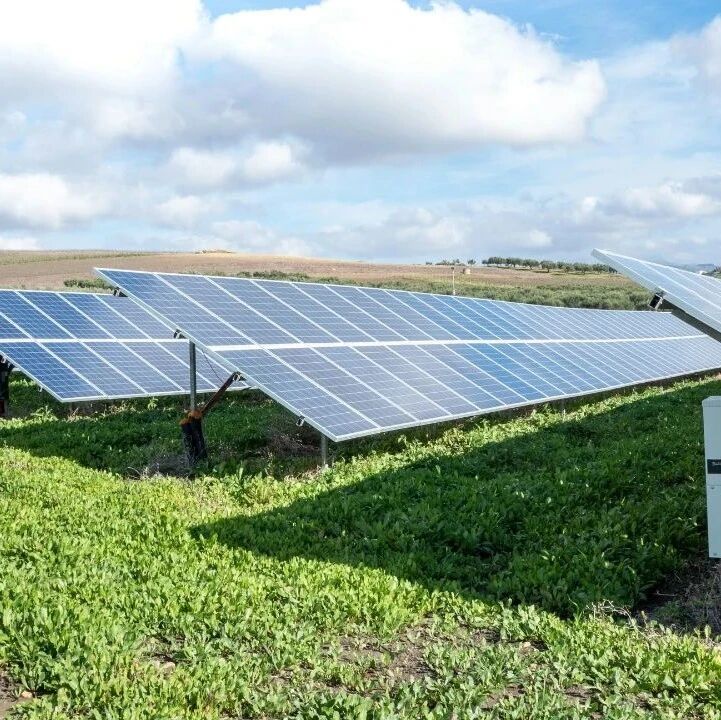More than 1,600 global leaders from over 80 countries have gathered to deeply discuss how to implement a more sustainable and inclusive model of global growth—aimed at revitalizing the world economy.
This year's annual conference revolves around six key pillars—global new economy, China and the world, entrepreneurial spirit in the age of artificial intelligence, emerging industry frontiers, investing in people, and the interconnectedness of climate, nature, and energy—aiming to foster collaborative partnerships and showcase innovative solutions.
The World Economic Forum, in collaboration with its partners, has launched or advanced around 20 action initiatives and reports focusing on themes such as energy transition, emerging technologies, trade competitiveness, and the future of healthcare.
Against a backdrop of economic uncertainty and an increasingly complex geopolitical landscape, more than 1,600 global leaders from the business, political, civil society, and international organizations gathered in Dalian, China, for the 15th Annual Meeting of the World Economic Forum’s New Champions. The forum focused on strategies to boost global economic recovery, foster collaborative partnerships, and showcase innovative achievements and solutions.Under the theme "New Frontiers for Future Growth," the annual conference delved into the challenges and opportunities emerging in a rapidly evolving global landscape. Attendees participated in several high-level meetings and workshops, fostering collaboration while exploring fresh avenues for economic growth. The event also provided timely insights into China’s—and Asia’s—economic development prospects. Today, Asia continues to drive two-thirds of the world’s economic growth."To drive future economic growth, we must embrace innovation and foster collaboration across sectors, regions, nations, and cultures—only then can we build a more peaceful, inclusive society and create a resilient future," said Klaus Schwab, Founder and Executive Chairman of the World Economic Forum."Frontier technologies are achieving breakthroughs across multiple areas while seamlessly integrating with one another, profoundly transforming traditional production functions and driving productivity to new, significant heights," stated Chinese Premier Li Qiang. "This transformation is poised to give rise to entirely new fields and industries—such as artificial intelligence, green energy, and biopharmaceuticals—opening up fresh growth opportunities and potentially nurturing several pillar industries each worth over one trillion U.S. dollars," he added. "In essence, deepened international cooperation is providing the solid foundation that propels humanity’s development forward," Premier Li emphasized.“We need innovative thinking to drive innovation and progress—this means we require fresh approaches. We must dare to challenge the status quo,” said Polish President Andrzej Duda.“The future depends on innovation, climate action, and high-quality human resources,” said Vietnamese Prime Minister Pham Minh Chinh. “We must adopt a new mindset and approach centered on people and focused on holistic development, ensuring that the benefits reach everyone.”“Education is absolutely critical. I believe we cannot afford to overlook the value of talent development,” noted Amina Mohammed, UN Deputy Secretary-General and Co-Chair of the 2024 New Champions Annual Meeting.This year's annual conference focuses heavily onSix Major Thematic Pillars: The global new economy, China and the world, entrepreneurial spirit in the age of AI, emerging frontiers in industry, investing in people, and the interconnectedness of climate, nature, and energy.Global New Economy
Against the backdrop of a stabilizing global economy, the pace of global growth is expected to moderate by historical standards, and a "cautiously optimistic" outlook is increasingly becoming the dominant attitude. Participants unanimously agreed thatGlobal collaboration and innovationIt is crucial for maintaining and boosting economic growth, as it enables us to tackle climate emergencies, escalating geopolitical conflicts, and the growing threat of information epidemics. However, as geopolitical economic divisions deepen rifts between regions, conflicts and competition are expected to significantly erode people's willingness to collaborate on joint initiatives.Governments around the world are actively formulating economic and industrial policies, with a strong focus onTechnology and Green IndustriesKey growth areas to further enhance competitiveness.Multiple session tracks will focus on how to balance accelerating technological advancement withAchieving inclusive, sustainable growthKey issues at hand; how to expand the forum's framework for future growth; and how toImplementing a unified fiscal, trade, and industrial strategy"while simultaneously curbing inflation and fostering economic recovery." The "Future Growth Initiative" has welcomed new members, now counting over 30 leaders from politics and business. The initiative aims to drive new growth models across various countries and industries, encouraging investments in innovation, inclusivity, sustainability, and resilient development. A robust measure has been proposed: boosting global economic output by promoting women’s employment, thereby addressing the slowdown in global economic growth."Indeed, for Rwanda, adopting cutting-edge technology is not just a necessity—it’s a matter of national survival," said Paula Ingabire, Rwanda’s Minister of Information, Communications Technology, and Innovation, and Co-Chair of the 2024 New Champions Annual Meeting.China and the World
China's economic growth target for 2024 is around 5%, and it is expected to become the largest contributor to global economic growth."China Economic Outlook"The session will focus heavily on China.Growth Drivers, the discussion explored essential short-term economic stimulus measures as well as long-term, systemic strategies aimed at revitalizing growth prospects and ensuring sustained economic expansion. The meeting provided attendees with a crucial platform to gain insights into China’s rising investments in technology and its growing global influence in the tech sector.As the largest emerging economy, China plays a pivotal role in shaping cooperation and multilateralism. Thanks to the rapid growth in trade and investment, strategic partnerships centered on the energy transition, key geopolitical priorities, and shared interests in overseas markets,China and the Middle EastEconomic ties are continuously strengthening. Moreover,China and the United StatesWe must continue strengthening cooperation to foster global unified action on critical global issues such as climate change, healthcare, and innovation."Overall, China's thriving manufacturing sector seems to be just beginning to accelerate. We haven’t yet truly witnessed the spectacle of Chinese manufacturing working its magic and shining brightly," says Adam Tooze, director of Columbia University’s European Institute.Entrepreneurship in the Age of Artificial Intelligence
The forum released its annual "Top 10 Emerging Technologies" report, addressing key issues such as the acceleration of global connectivity, the rise of artificial intelligence, and the convergence of the physical, digital, and biological worlds. The rapid advancement of these emerging technologies is unlocking significant potential to boost productivity, drive economic growth, and foster sustainable development. Several sessions specifically focused on generative AI, highlighting its immense long-term promise—and how this technology is poised to reshape and transform industries across the board in the years ahead.To unlock the potential of these emerging technologies,EntrepreneurIt will play a crucial role. Over 200 members from the Forum’s innovator community attended the annual conference, including entrepreneurs, investors, partners, and academic experts from the Forum’s UpLink community, as well as several social innovators who have been recognized with awards from the Schwab Foundation for Social Entrepreneurship.The meeting emphasizedAccording toGovernance through societal valuesThe event highlighted the importance of exploring how to simultaneously leverage infrastructure, investment, and policy frameworks. Participants called for the responsible and inclusive design, development, and deployment of AI technologies worldwide—technologies aimed at benefiting and safeguarding humanity as a whole. During the forum, the "Investor’s Guide: Responsible AI Applications" report was unveiled, marking the first comprehensive guide designed to help investors fully capitalize on AI-driven opportunities while effectively mitigating associated risks. Meanwhile, the Schwab Foundation for Social Entrepreneurship released a separate report outlining a set of principles for responsibly scaling, implementing, and managing AI initiatives in ways that foster social innovation. Additionally, the forum launched the "AI-Powered Industry Transformation Initiative" in China, a commitment to supporting businesses across diverse sectors—from financial services and manufacturing to consumer goods—in their journey toward integrating AI technologies to boost operational efficiency and drive growth."Technologies in the fields of the digital economy and energy transition will transform industries and society," said the Managing Director of the World Economic Forum.Mirek DusekMirek Dušek said."Organizations that understand the factors shaping the future will be able to make better decisions today," said Jeremy Jurgens, Managing Director of the World Economic Forum.
New Frontiers of Industry
In recent years, significant economic, geopolitical, environmental, and technological changes have already been impactingAll industries and supply chainsThe annual meeting explored the challenges and opportunities brought about by these transformations. Global manufacturing has reached a pivotal moment—embracing a responsible transition is no longer optional, but an essential step to enhance competitiveness and resilience, and drive sustainable growth.With the support of the Advanced Manufacturing CEO Community, the forum launched"Next-generation industry leaders"Planning the next round of nominations. This program is a world-leading accelerator initiative designed to equip the next generation of leaders in manufacturing and the supply chain with essential skills, empowering them to drive inclusive and responsible transformations across industries."Initiative to Accelerate the Low-Carbon Transformation of Industry"A new action plan has been launched to help SMEs in the manufacturing sector accelerate their sustainable transformation. It is backed by some of the world's most advanced factories."Global Lighthouse Network"Bring together leading manufacturing companies to identify the critical transformations needed to drive the implementation of digital technologies across the value chain.
Investing in people
Influenced by factors such as geopolitical economics, technology, and the green transition, nearly a quarter of job opportunities—and more than 40% of occupational skills—are at risk of being disrupted. The annual conference will revolve aroundFuture EmploymentThe discussion offered important insights, highlighting the necessity of placing people at the heart of technological and economic transformations—while committing to fostering human progress and ensuring that everyone is equipped for career advancement. Several session highlights underscored the potential of leveraging technology to accelerate improvements in education and enhance skill development. Attendees then turned their attention toSkills retraining, responsible AI utilization, and addressing climate-related health challengesChallengeThe discussions touched on several key areas where innovative approaches to work are urgently needed. The conference also unveiled the report titled "The Impact of Climate Change on Human Health: Scientific Evidence and the Role of the Private Sector." Building on the findings of the "2024 Global Gender Gap Report," one session underscored the global imperative to reaffirm and strengthen commitments toward achieving gender equality."Scientific evidence published in *Nature* reveals that the remote collaborations forged during the COVID-19 pandemic and in the post-pandemic era are yielding fewer and fewer breakthroughs," says Magdalena Skipper, Editor-in-Chief of *Nature*."We need a more coordinated growth model that fully considers the impact of growth on social, human, and natural capital," said André Hoffmann, Chairman of Massellaz and Vice-Chairman of the Roche Group Board.
The interconnectedness of climate, nature, and energy
The forum released the latest version during the annual conference."Energy Transition Index", the progress made by 120 countries in advancing the energy transition and building more equitable, secure, and sustainable energy systems was assessed. The briefing on the "Energy Transition Index" highlighted the significant gap between advanced economies and developing economies in their performance on energy transitions, underscoring the urgent need for action to tackle climate change.The first batch of China's influential startups—selected by the forum as "Top Innovators"—have joined UpLink's innovation ecosystem and will collaborate with the "1t.org Initiative, Leading the Global Planting of Trillion Trees." These companies will receive dedicated support to help them scale and achieve sustainable growth.The forum and the Global Energy Interconnection Development and Cooperation Organization signed a cooperation agreement to further advance the energy transition, promote clean energy development, and address other related challenges."Through heatwaves, droughts, or floods, we’ve all felt the impact of climate change and extreme weather. As leaders, we must confront this reality head-on and take responsible action," said Liang Jinhui, Managing Director of the World Economic Forum."Thanks to low-cost, affordable technologies, the future of truly clean energy is finally within reach—something unprecedented in human history. We need to implement science-based policies and set appropriate goals," pointed out Hu Min, founder and director of the Institute for Green Development and Innovation (iGDP)."Currently, a dead tree is worth more than a living one. Valuing the very foundation upon which humanity depends for survival and development in this way is simply unreasonable," said Kitty van der Heijden, Deputy Executive Director of Partnerships at UNICEF.“We are driving the energy transition in Dalian. We’re promoting a green lifestyle,” said Chen Shaowang, Mayor of Dalian.
About the 2024 New Champions Annual Meeting
The 15th Annual Meeting of the New Champions was held in Dalian from June 25 to 27, bringing together over 1,600 high-level leaders from business, government, civil society, and international organizations. Under the theme "New Frontiers for Future Growth," the event fostered collective insights and actionable solutions, helping to ignite and sustain positive momentum in the global economy.

Feel free to share this in your WeChat Moments; please leave a comment below if you'd like to republish.
Search and follow on Weibo, WeChat Video Channels, Douyin, and Xiaohongshu.
"World Economic Forum": Stay updated on the latest conference developments in real time



